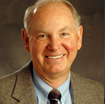Commentary on James 5:13-20
“In fulfillment of God’s purposes … ” That’s how the opening verses of James have described the purposive nature of God’s “generous acts of giving” and God’s “every perfect gift.”
And in God’s giving of good gifts in fulfillment of that purpose James further assures us God does not waver — “there is no variation or shadow due to change” (James 1:17-18). If the “fear of the Lord is the beginning of wisdom,” then the whole of the wisdom tradition, as unfolded for us in the epistle of James, seeks to encourage and lead us to the conviction that we are indeed endowed by our creator with a rich bounty of gifts for the living of daily life in this world. It is then an extra benefit if the author can teach us some of the practical insights that human wisdom has discovered about a faithful living that leads to healthy life.
Concluding counsel
The summation of that teaching is now gathered in this concluding section of the letter. Its words might be described as a confident vision of a caring community. Such a community exercises its wisdom not in lofty exercises of philosophy or logic to bolster or entertain the self, but rather in the recognition and use of the powerful resources God has given for the care of the community in which each of us thrives through mutual benefit.
An honest appraisal of the situation
Wisdom does not look at the world through rose-colored glasses. Its vision is clear and honest in its recognition that life contains many ups and downs and often complex situations that we cannot always control. Our reading quickly and succinctly suggests some alternative situational paradigms clearly intended to stand for all the possibilities (James 5:13-14). The NRSV translations of “suffering” and “cheerful” might somewhat mask this intention. The original pathos of one who is doing “badly” (kakos) refers not only to the “suffering” of persecution, but to anything that can contribute to a negative life experience, such as sorrow, depression, ill health, bad family or social situation, economic exigencies. Use your imagination. The contrasting image speaks of a thymos that has to do with the inner self or passion. So an inner self that is doing well (eu) has to do more with a holistic sense of the self rather than to just being “cheerful.” The third image does indeed refer to ones who are sick, although the term used here is regularly used to refer to any kind of sickness or bodily infirmity, either short range or long. In sum, the author’s quick statement of alternatives pretty much includes anyone we might imagine, including ourselves. And for any situation, wisdom suggests a practice that is fitting to the occasion.
The vision of a caring community
As noted above, the practices now imagined and described might be summarized as those of a caring community. They include prayer, the singing of songs of praise, and the ministry of presence and touch in the laying on of hands and anointing, all while invoking the power and promise that belongs to the community in the “name of the Lord.” It is not surprising that the invocation imitates the same words with which it is customary to begin our gatherings in corporate worship. All of these actions assume a community that surrounds and sustains its members in their individual and personal needs. The specific admonition to “call for the elders” for prayer and laying on of hands makes the link between individuals and the gathered community very specific.
Confidence in the power of prayer
At the beginning of the letter the author has counseled that if we lack anything that belongs to wisdom, the correct response is to turn to God in prayer, knowing that God will respond “generously and ungrudgingly” (James 1:5). That confidence is now reasserted in these final words to the community. But now the power of prayer holds out some rather telling content and promise. The author speaks of its power to “save” the sick, to “raise them up,” and to occasion the “forgiveness of sins” (James 5:5). In effect the assertion is that in the community’s exercise of prayer the very promise and power of the resurrection remain not just some future hope but now impinge on, recreate, and sustain a living and active community of faith.
It takes a village
In case it has slipped our notice, the author emphasizes it once again — such an exercise of prayer is not either by or for persons in isolation. We might imagine that such counsel jumps over the centuries in being particularly relevant to our own contemporary world. Ours is a very individualist oriented culture. Self-help books proliferate on our bookshelves. And even our so-called “social media” is often structured or utilized primarily to focused on exalting individual identities and chalking up the greatest number of “friends” on our tally sheets (friends for whom the greatest insult might be that in a fit of pique I might “unfriend” them at any moment).
But James knows a wisdom that is communal, especially in its faithful exercise of prayer. Twice he charges that confession should be “to one another,” and that we should pray “for one another,” if we have any expectation that the promised healing is to take place (James 5.16). Such prayer exercised within and on behalf of the community has power — James says it is “effective.” It is effective because it is exercised within the context of a community endowed with God’s gifts in creation, and because it belongs to ones who have been forgiven and empowered by the implanted word of promise in Christ Jesus. In James’ language it is the prayer of ones who are “righteous.”
There are stories
The power of prayer is not without its stories in the tradition of the people. The story of the faith hero Elijah is lifted up as testimonial example. By the lifting up of such examples our own communities of faith are also encouraged. We need to find fitting ways to add our own stories and our own experiences to the rich ongoing tradition that confirms with conviction and confirmation the power of God’s gifts to bring salvation and healing to the community of faith.
The reach of an extended family
Families need to continue to care for one another. And that includes those who are at risk. Once again there is an honest recognition that there will be some who will “wander from the truth” (James 5:19). This, too, each of us can testify from our own personal and communal experience. In such occasions there will need to be those among the community who care enough to “turn them around” and bring them back. We need to know that such efforts of bringing back a wandering brother or sister are worth the effort, because in them we can know that God’s salvation is at work. In all its actions of caring, sustaining, and healing one another the community is bearing witness to the fact that God’s work of salvation continues in the involvement and actions of a caring community that exercises its actions confidently in the name of Jesus.


September 27, 2015